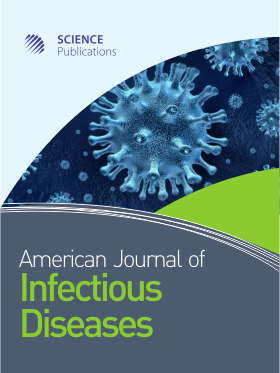Antibiogram of Bacteria Isolated from Kunun-Zaki Drink Sold in Keffi Metropolis
- 1 Nasarawa State University, Nigeria
- 2 University of Jos, Nigeria
Abstract
Kunun-zaki drink is a locally prepared indigenous non-alcoholic beverage that is widely produced and consumed in Nigeria. Standard microbiological methods were employed to isolate bacteria from Kunun-zaki drink sold in Keffi metropolis, Nasarawa State, Nigeria. Samples of Kunun-zaki drink were collected from ten (10) different locations and their bacteriological loads were determined in terms of total bacterial counts using standard methods involving pour plate. The antibiotic resistance pattern of the bacterial isolates against some antibiotics was determined using the Kirby-Bauer disk diffusion method. The bacterial counts of the Kunun-zaki in the ten different locations range from 9.1×108 to 2.6×108 cfu/mL. Four species of bacteria were isolated and identified by standard microbiological methods and these were Escherichia coli, Enterobacter aerogenes, Staphylococcus aureus and Streptococcus spp. The most predominant isolate in terms of occurrence was Escherichia coli (100%) followed by Enterobacter aerogenes (70%), Staphylococcus areus (30%) and Streptococcus spp (10%). Escherichia coli showed high resistance to Chloramphenicol (75%), followed by Septrin (68.7%) and Sparfloxacin (68.7%), while Enterobacter aerogenes, Streptococcus spp and Staphylococcus areus had low rates of resistance to all the antibiotics tested. E. coli had very sensitivity to Pefloxacin (100%), Gentamicin (88%), Amoxicillin (88%), Augmentin (75%), Tarivid (68.7%) and Streptomycin (68.7%). Streptococus spp are the most susceptible isolates which had 100% sensitivity to Septrin, Chloramphenicol, Amoxicillin, Gentamicin and Pefloxacin respectively and this was followed by Staphylococcus areus which had 100% sensitivity to Chloramphenicol, Amoxicillin, Augmentin and Tarivid respectively. The antibiotic resistance pattern exhibited by E. coli isolated from the Kunun-zaki sold in Keffi is indicative of possible abuse of the use of antibiotics and this has serious health implications. The results of this study demonstrate that Kunun-zaki sold in Keffi is contaminated with potentially pathogenic bacteria including antibiotic resistant E. coli and these may lead to failures in antibiotic chemotherapy among consumers of Kunun-zaki in the Keffi metropolis.
DOI: https://doi.org/10.3844/ajidsp.2013.71.76

- 6,765 Views
- 5,157 Downloads
- 5 Citations
Download
Keywords
- Antibiogram
- Antibiotics
- Resistance
- Kunun-Zaki
- Keffi
